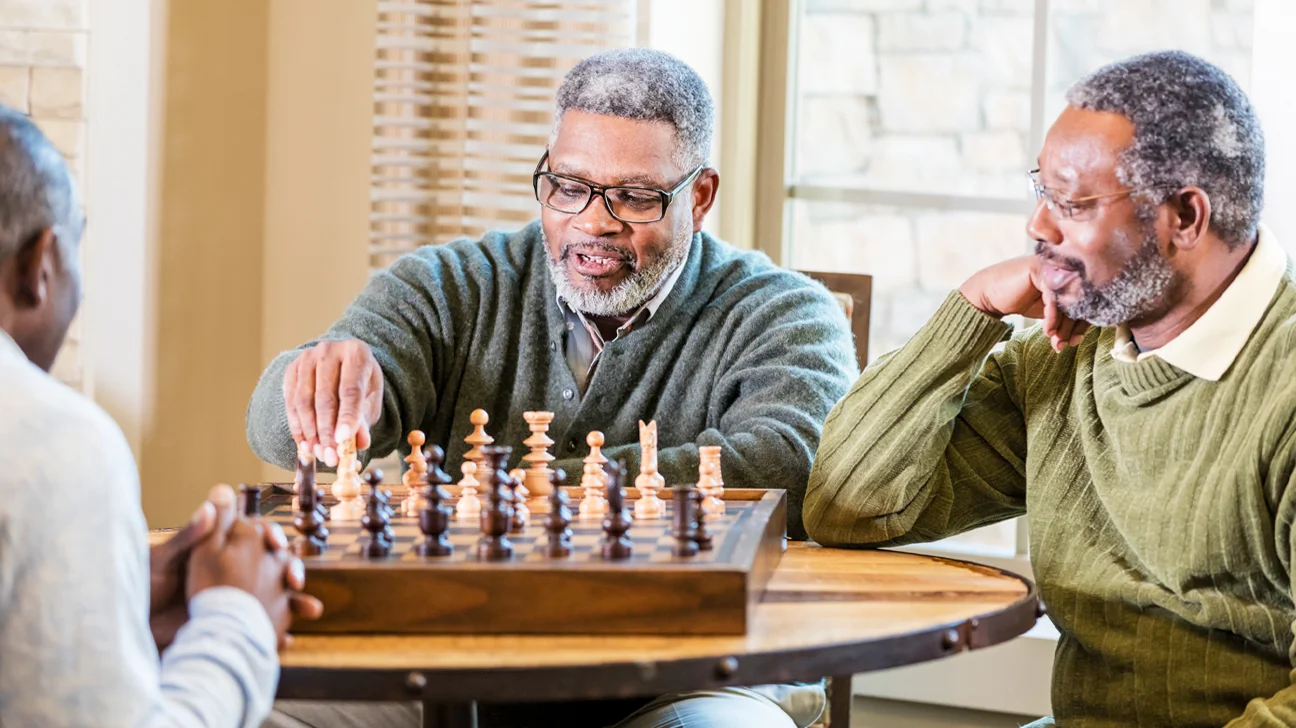Online multiplayer games have transformed the gaming experience by allowing players from all over the world to interact and collaborate in virtual environments. Gone are the days when gaming was primarily a solitary activity or confined to local groups of friends. The rise of the internet and sophisticated gaming platforms has given birth to an era where millions of players can join forces, compete, and build lasting relationships in digital worlds. But beyond just entertainment, online multiplayer games are increasingly recognized for their ability to enhance social interaction in unique and meaningful ways.
In this article, we explore how online multiplayer games foster social connections, encourage teamwork and communication, and provide opportunities for personal growth and cultural exchange.
Building Friendships and Expanding Social Networks
One of the most powerful ways online multiplayer games enhance social interaction is by helping players form new friendships and expand their social networks. Games provide a shared space where individuals with common interests come together, breaking down geographic, social, and cultural barriers.
Meeting People from Around the World
Online multiplayer games offer players the opportunity to meet individuals from diverse backgrounds and different parts of the world. This global connectivity enables players to share experiences, exchange ideas, and learn about other cultures. For example, games like World of Warcraft, Fortnite, and League of Legends feature players from virtually every corner of the globe, making them more than just a form of entertainment but also a platform for cross-cultural exchange.
Through voice chats, text messaging, and in-game interactions, players can develop relationships with others that transcend national boundaries. These connections can lead to lasting friendships, collaborative experiences, and even partnerships that extend beyond the digital realm.
Connecting Through Shared Interests
Gaming inherently attracts people who share a love for certain genres, such as strategy, action, role-playing, or sports. Players can bond over these shared interests, providing common ground for interaction. Online multiplayer games allow players to engage in activities together, whether it’s completing quests, fighting battles, or simply exploring a virtual world. These shared experiences often spark conversations, deepen connections, and promote a sense of camaraderie.
For example, players in Minecraft or Animal Crossing may bond over creative building or community development. Similarly, competitive players in Call of Duty or Overwatch can form alliances based on mutual respect and teamwork. Over time, these interactions may evolve into meaningful friendships that extend beyond the game itself.
Encouraging Teamwork and Communication
Multiplayer games often require players to work together as a team to achieve shared objectives. Whether it’s coordinating strategies in a competitive game, completing quests in a cooperative role-playing game, or managing resources in a simulation game, teamwork is a fundamental element of online multiplayer games.
Effective Communication
Communication is key to success in many multiplayer games, and it is often the foundation for effective teamwork. In games like Overwatch, Rainbow Six Siege, or League of Legends, players need to communicate their strategies, share information about the game environment, and support each other during high-stakes moments. Voice chat, in-game text messages, and ping systems are often used to facilitate quick and clear communication among players.
This constant need for coordination encourages players to develop better communication skills, such as active listening, clear expression, and even negotiation. In some cases, players who would not normally communicate in everyday life, such as introverts or those from different cultural backgrounds, may be encouraged to speak up and collaborate more effectively.
Building Trust and Cooperation
Successful teams rely on trust and cooperation, and online multiplayer games provide a unique opportunity to build these essential components of teamwork. Whether players are working together to complete difficult missions or engaging in complex strategies during a battle, the process of cooperation strengthens bonds and encourages mutual respect.
In competitive games, such as Dota 2 or Fortnite, teamwork can often make the difference between winning and losing. As players learn to rely on each other’s skills and abilities, they develop a sense of interdependence, which enhances social cohesion. This type of cooperation extends beyond gaming and can improve players’ ability to work collaboratively in real-world settings.
Providing a Sense of Belonging
Online multiplayer games provide a sense of belonging by creating communities where players can feel accepted and valued. Many games have dedicated forums, fan clubs, and social media groups where players can interact, share experiences, and support each other. These communities can help combat feelings of loneliness and isolation, especially for individuals who may have difficulty forming connections in their offline lives.
Guilds and Clans
In many online games, players can form or join guilds, clans, or other social groups that focus on specific objectives, such as playing together regularly, achieving in-game accomplishments, or participating in tournaments. These groups offer a sense of belonging and often become tight-knit communities where players share common goals and support each other both in and out of the game.
For example, in World of Warcraft, guilds often organize raids, in-game events, and social gatherings, fostering a strong sense of camaraderie and connection. Similarly, in Fortnite, players may join clans that focus on competitive play, sharing strategies and victories as a group.
Guilds and clans often extend beyond the game itself, with members interacting on social media, voice communication platforms (such as Discord), and even organizing real-world meetups. These online groups become virtual families or social circles where players can find emotional support, make friends, and share their passion for gaming.
Virtual Events and Social Spaces
Many online multiplayer games host virtual events, such as in-game concerts, festivals, and seasonal celebrations, where players can socialize in a shared, virtual environment. For instance, games like Fortnite and Roblox regularly hold live virtual events, such as concerts by popular artists or in-game celebrations that allow players to interact with each other in real-time. These events provide a fun and engaging way for players to come together and celebrate their love for the game while forming new social bonds.
Some games, like Second Life or VRChat, take social interaction a step further by offering virtual worlds where players can engage in more open-ended social activities, such as attending virtual parties, exploring new areas, or participating in user-created content. These spaces allow players to express themselves, form friendships, and participate in community-building activities that go beyond the core gameplay.
Supporting Mental Health and Well-Being
Online multiplayer games can have a positive impact on mental health by providing an outlet for self-expression, stress relief, and relaxation. For many players, the gaming environment serves as a way to unwind after a long day or to escape from real-world stresses.
Social Support During Difficult Times
In challenging times, such as during the COVID-19 pandemic, online multiplayer games offered a critical social outlet for people who were isolated from friends and family. Games provided a way for individuals to stay connected with loved ones, form new social bonds, and engage in shared activities, even while physically apart.
Additionally, online gaming communities often offer emotional support through shared experiences. Players who are dealing with personal challenges, such as mental health issues, can find a safe space where they are understood and accepted. This sense of social support can be crucial in helping individuals cope with feelings of anxiety, depression, or loneliness.
Improving Cognitive and Emotional Skills
The collaboration and communication required in online multiplayer games also help players develop important cognitive and emotional skills, such as problem-solving, empathy, and emotional regulation. For example, players who work together to solve complex puzzles or defeat difficult enemies can develop resilience, patience, and a sense of achievement.
In addition, the challenges faced in multiplayer games often encourage players to reflect on their behavior and improve their emotional responses to frustration, disappointment, or competition. This process can contribute to greater emotional intelligence, which is a valuable skill in both personal and professional life.
Fostering Cultural Exchange and Diversity
Online multiplayer games provide a platform for players from diverse cultural backgrounds to engage with one another. As players come together from different countries, regions, and ethnicities, multiplayer games create unique opportunities for cultural exchange and global understanding.
Celebrating Diversity
Many online games encourage inclusivity and celebrate diversity by featuring characters, storylines, and environments that represent various cultures, languages, and perspectives. These elements allow players to explore different cultures, broaden their horizons, and appreciate the richness of human diversity.
In addition, online multiplayer games often feature international tournaments and global events where players can showcase their talents and interact with players from different countries. These events highlight the global nature of gaming and provide an opportunity for players to learn about other cultures and traditions through their shared love of gaming.
Conclusion
Online multiplayer games are much more than just entertainment; they are powerful tools for enhancing social interaction and fostering meaningful connections. From building friendships with people across the globe to encouraging teamwork and communication, these games offer players a platform to engage, learn, and grow socially. Additionally, multiplayer games provide a sense of belonging, emotional support, and cultural exchange, making them an essential part of the modern social landscape.
As technology continues to advance and online gaming becomes even more immersive and interactive, the potential for these games to enhance social interaction will only grow. Whether you’re collaborating on a quest, sharing a victory, or simply enjoying a virtual event with friends, online multiplayer games create opportunities for connection, collaboration, and community in ways that few other mediums can match.




